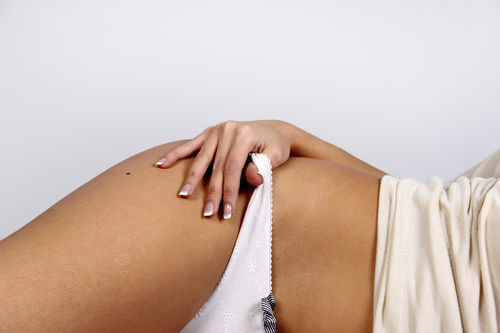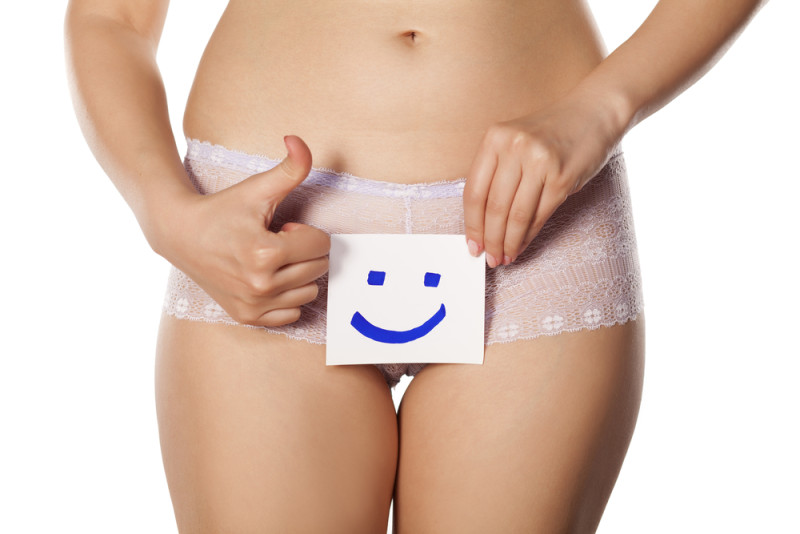10 Things you should never do to your vagina
- Posted on
- Comment
 When it comes to health, women only think about whether their vital organs are healthy. Most women ignore the health of their vagina.
When it comes to health, women only think about whether their vital organs are healthy. Most women ignore the health of their vagina.
A healthy vagina is acidic in nature and contains beneficial bacteria that help fend off infections and maintain a normal pH level. Any kind of vaginal problem can cause irritation or infection and lot of discomfort.
Keeping the vagina healthy is not a difficult task. All it takes is practicing proper hygiene, eating a healthy diet, wearing proper clothing, exercising daily and managing stress.
It’s also important to know what is harmful to your vaginal health. Treat your vagina right, and it will have great benefits to your overall health.
Here are 10 things you should never do to your vagina.
1. Say No to Douching
Douching means to wash out the vagina, usually with a mixture of water and vinegar. There are many over-the-counter douches in the market that contain antiseptics and fragrances, which can be harmful for the vaginal health.
Many women practice douching to feel fresher, get rid of unpleasant odors, wash away menstrual blood after aperiod, and to avoid getting sexually transmitted diseases (STDs) and prevent pregnancy after intercourse. But health experts say that douching is not beneficial for any of these purposes.
In fact, researchers analyzed several studies on vaginal douching and concluded that it is not necessary or beneficial and is very likely to be harmful, according to a 2008 study published in Epidemiologic Reviews.
Irrespective of the popularity and availability of douches in the market, douching is something you should avoid at any cost.
Douching can disturb the pH level of the vagina and can lead to an infection. In fact, it has been associated with conditions like pelvic inflammatory disease, bacterial vaginosis, and ecurrent vulvovaginal candidiasis. Moreover, your vagina is self-cleaning, so it doesn’t need douching to make it cleaner. All you need is a proper wash with some warm water to keep it clean.
2. Avoid Vaginal Steaming
Steaming your vagina at the spa is a new trend that many women are opting for these days. During these steaming sessions, females remove their underwear and sit on special chairs that have herbal-infused steam coming out of them directly toward their vagina.
Most spa centers claim that vaginal steaming improves female hygiene and balances hormones. But in reality, it does more harm than good.
First of all, it can burn the sensitive skin in and around your vagina. If the burn is severe, it can cause harm to your bladder and rectum, too.
Plus, steam can be drying and disrupt the balance of natural bacteria that live in your vagina and increase your risk of a yeast infection.
Finally, as hormones are not produced by the uterus or the vagina, it is totally wrong to state that vaginal steaming can lead to a hormonal balance in the body.
3. No Piercing Please
Pierced ears and noses have long been a fashion accessory. In today’s generation, women are also piercing their tongue, lips, eyebrows and even the genitals.
Genital piercing is usually done for sexual enhancement. There are also many who opt for this type of piercing in order to feel adventurous, exciting or naughty.
When it comes to genital piercing, the two most common areas are the clitoris or clitoris hood and the outer or inner labia. No matter where the piercing is done, the vagina is a sensitive area and piercing can cause severe pain and nerve damage.
Plus, it creates an opening in the body, thus increasing the chance of skin irritation as well as infection.
In addition, going to a piercing shop puts you at a higher risk for tetanus, HIV, hepatitis B and C, and other STDs.
4. Wearing Underwear that’s Too Tight
Underwear should fit comfortably and never be too tight. Tight underwear promotes chafing of the skin and vaginal irritation. With time, it can even cause ingrown hairs, which can be very painful and difficult to treat.
On top of that, tight underwear puts you at an increased risk of yeast infections because it allows for heat and moisture to build up in your vaginal area, which creates an ideal setting for bacteria to grow.
Plus, wearing underwear that’s too tight can lead to visible bulges and puckering, which is something nobody wants.
Try to always wear properly fitting underwear and make sure you choose those made of breathable fabrics, such as cotton. Non-breathable and synthetic fabrics, such as polyester and lace, can irritate your vaginal area and even put you at risk for developing yeast and bacterial infections.
5. Don’t Mess with Pubic Hair
Dealing with pubic hair is a tricky as well as embarrassing business. If the pubic hair is not handled properly, you can be left with razor burns, ingrown hairs and other forms of unpleasantness in the sensitive area.
Whether you prefer shaving, waxing or hair removal creams, none are good for your sensitive skin. Moreover, removal can also increase your risk of contracting an STD.
A 2012 study published in the International Journal of STD & AIDS suggests that pubic hair removal can increase your chance of contracting an STD because removing the hair affects the skin membrane, making it easier for bacteria to enter the body.
Another 2014 study published in the American Journal of Obstetrics and Gynecology reports that minor complications commonly occur as a result of pubic hair removal.
Pubic hair has a purpose. It absorbs moisture and protects the area down there from infections, such as herpes and genital warts. So, instead of getting rid of the hair completely, trimming it from time to time is a good option.
6. No Scented Soaps or Perfumes
Many women do not like the smell of their vagina, so they use scented soaps to provide a pleasing fragrance. Some also use perfumes or body sprays in their private parts to keep it smelling nice.
Use of both scented soaps and perfumes in the vaginal area are not recommended. Using such products can lead to infection and irritation, due to the presence of chemicals and other synthetic ingredients in them. Scented dryer sheets, scented sprays, deodorants and deodorizing wipes are also not recommended.
Water, just plain lukewarm water, is fine for keeping your vagina clean. Never use very hot water, as it can cause irritation and make the skin extremely dry. If you are using feminine washes, bear in mind they are for external use only. You must not use them inside the vagina!
The smell of the vagina is often related to a disturbed pH balance, which you can correct with a proper diet. If your vagina smells particularly foul, there may be a medical reason behind it and you should consult your doctor.
7. Don’t Use a Pad or Tampon for Too Long
Maintaining hygiene during menstruation is very important, and you must change your pad or tampon frequently.
The pH of menstrual blood is higher than healthy vaginal pH. The longer you use the same pad or tampon, the greater is the risk of vaginal infection. In fact, many women experience an increased rate of vaginal infections during menstruation. It can even cause toxic shock syndrome, a life-threatening condition caused by certain types of bacterial infections.
Change your tampon frequently, at least every 4 to 8 hours. Don’t use pads for longer than necessary and change them as often as you need to feel comfortable and clean. Also, avoid using them after your menstruation is over, as it can lead to skin irritation.
8. Don’t Use Petroleum Jelly as Lube
Many people find petroleum jelly to be an easy form of lubricant, but this is something you should avoid putting in your vagina.
First of all, it is not as slippery as the best water-based lubricant, thus it can break or tear a latex condom. Also, it becomes more sticky and messy with time, leading only to pain and discomfort. It is even very difficult to clean up petroleum jelly after intercourse.
Additionally, your vaginal area is very sensitive, and any petroleum jelly can throw off your pH balance and make you susceptible to infection or irritation.
If you need a little extra lubrication down there, consult your doctor. A doctor can prescribe the best one depending upon your health issues.
9. No Popping Pubic Acne
Just like acne can form on your face, neck or arms, it is also common in the pubic area.
No matter how painful or uncomfortable your pubic acne may be, puncturing or breaking the pimples is never a good idea. When you puncture the pimple’s outer skin, the pus oozes out with all the bacteria in it.
If these harmful bacteria reach other skin pores, it can lead to more pimples.
Breaking the acne can even force the debris and bacteria deeper into your skin, causing more redness, inflammation and swelling on the affected area. This may even lead to permanent scarring.
Also, if the acne-prone area itches, try not to scratch. It can cause serious irritation.
It is best to allow the acne to run its course. When left alone, acne will heal within a week or two.
10. No Sharp Objects Inside
The blood supply to the inside of the vagina is very rich and putting anything inside it increases the risk of a tear or cut. Even a small tear can cause incredible amounts of bleeding.
Plus, putting any unsanitary item up there increase the risk of an infection or irritation.
Find the right way to please yourself and do not put any objects inside your vagina, including fruits and vegetables (they contain pesticides). In addition, do not use anything that you have just used for anal play.
Also, in case of any cut or tear, do not try to treat it on your own. No matter how embarrassing it maybe, it is recommended to see a doctor immediately.
-top10homeremedies










 (Selorm) |
(Selorm) |  (Nana Kwesi)
(Nana Kwesi)